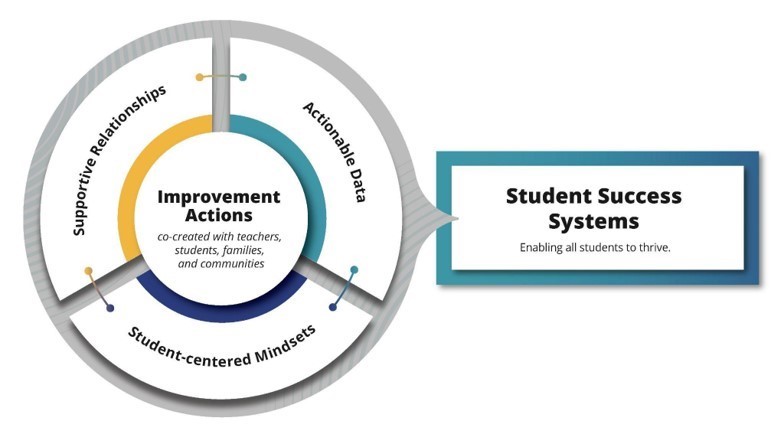High-quality student success systems combine four essential elements so that secondary schools are empowered, in an inclusive way, to graduate all students on a pathway to adult success through higher education and job training.
Read the four briefs below to learn more about each of the components.
- Strong, Supportive Relationships – High-quality student success systems build upon and strengthen supportive relationships. Four types of supportive relationships provide the foundation for student and school success – school adults and students, students and students, school adults and school adults, and school adults and parents/caregivers. These relationships depend on a school culture of belonging where everyone feels validated, accepted, affirmed, and treated fairly.
- Holistic, Real-Time, Actionable Data – School teams need access to research-based, predictive indicators that are continually available at the student and teacher level throughout the year, in as real time as possible. Data should be actionable by school- and district-level personnel.
- Adaptable Analysis, Response, and Improvement System – Student success systems use regular assessments of holistic data to develop strategic action that is student-centered, adapted to local context, and involves students, teachers and community members.
- Shared Set of Mindsets – Student success systems, and the actions student success teams co-create with the school community, are fueled by a shared set of student-centered mindsets.
